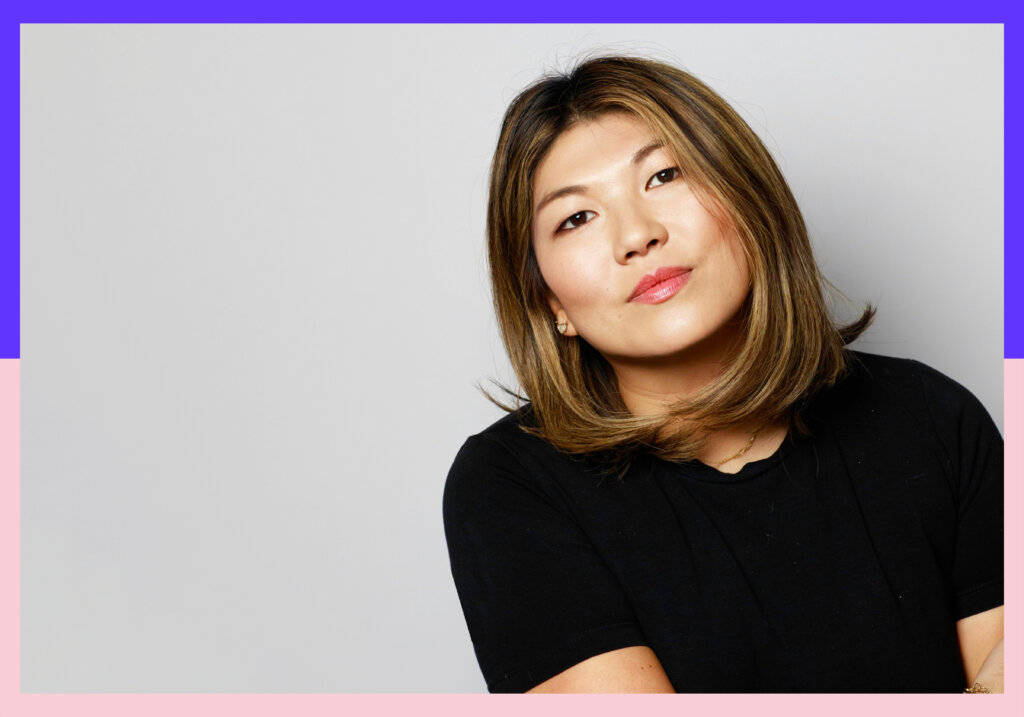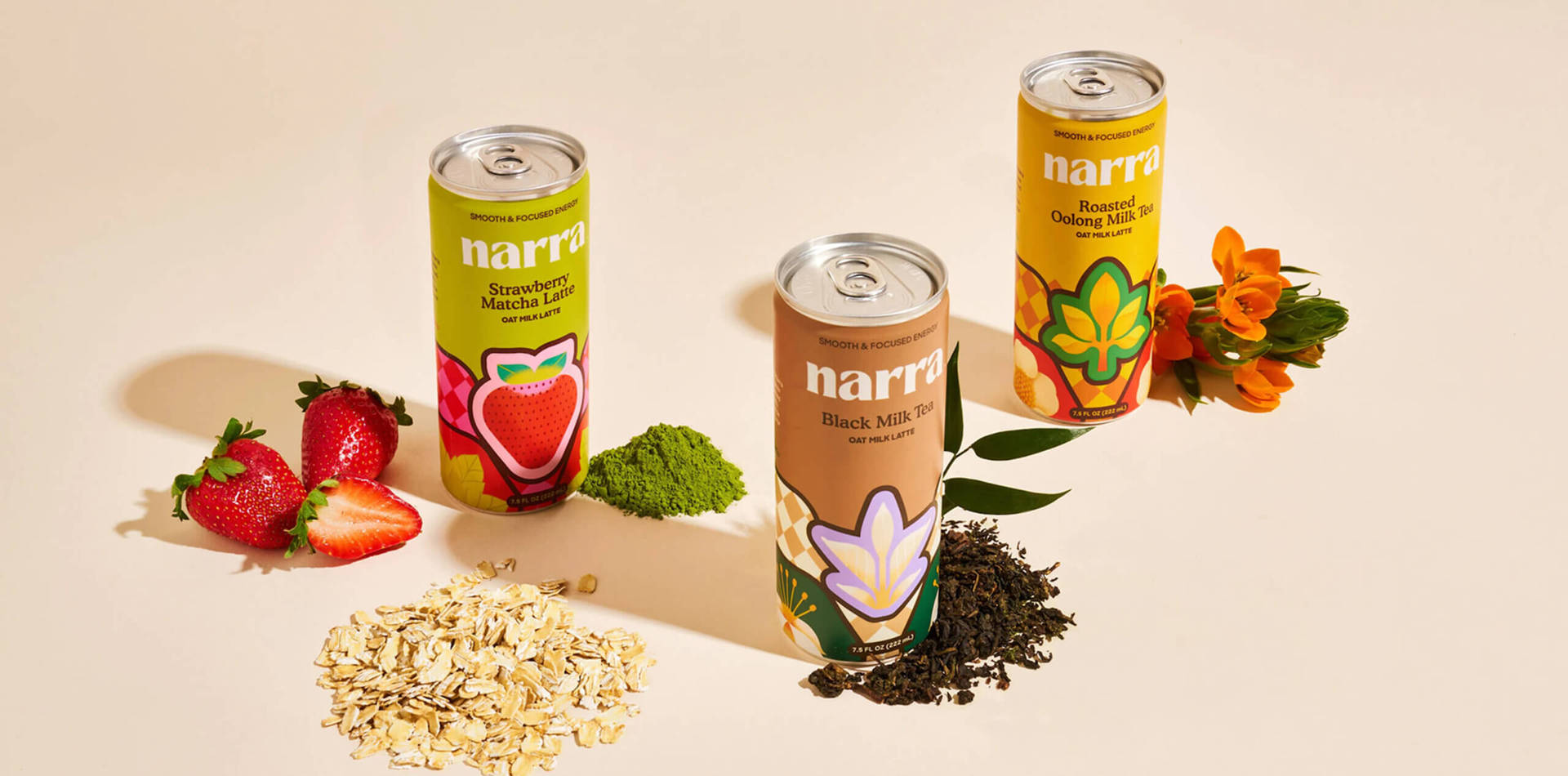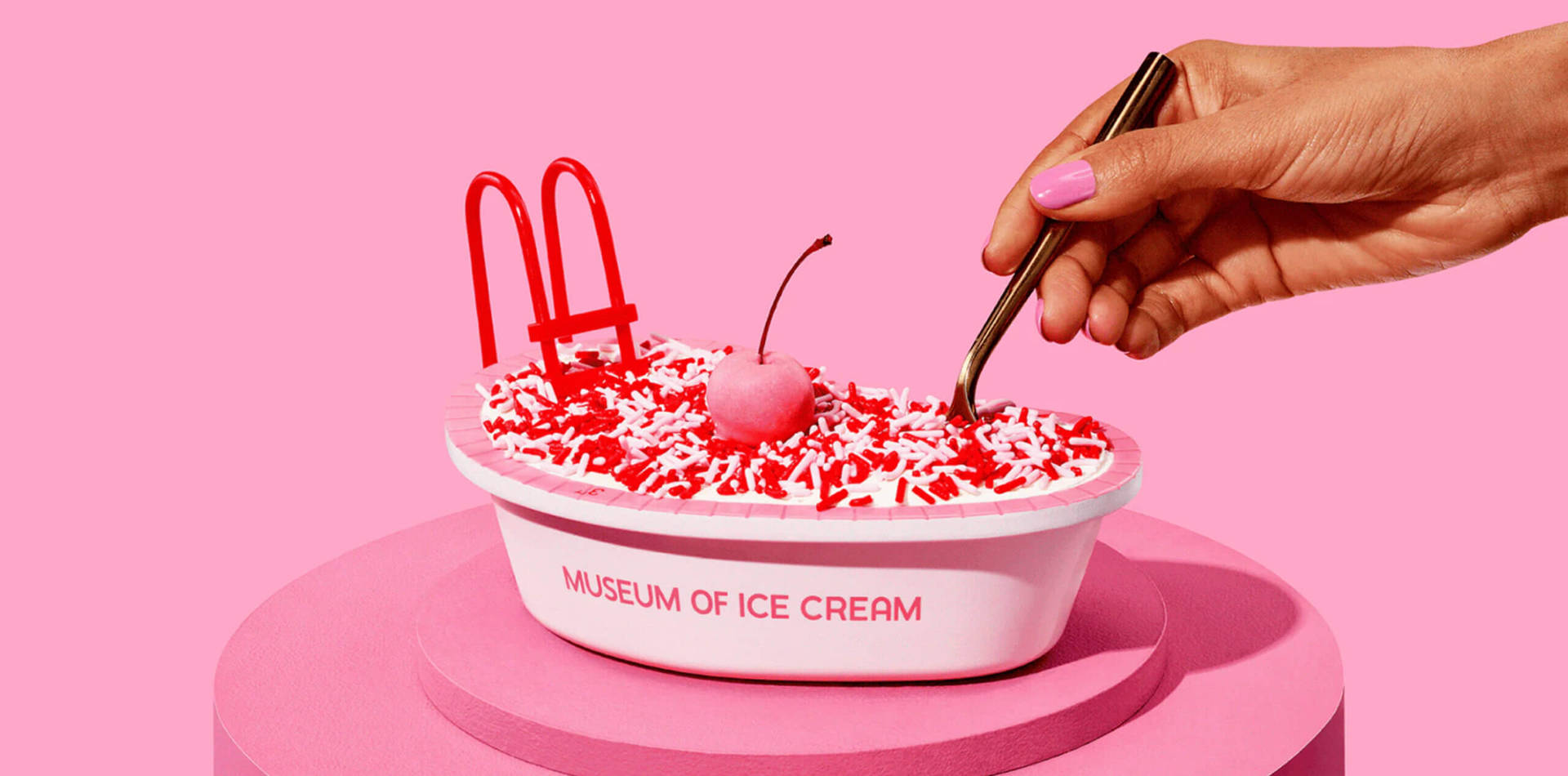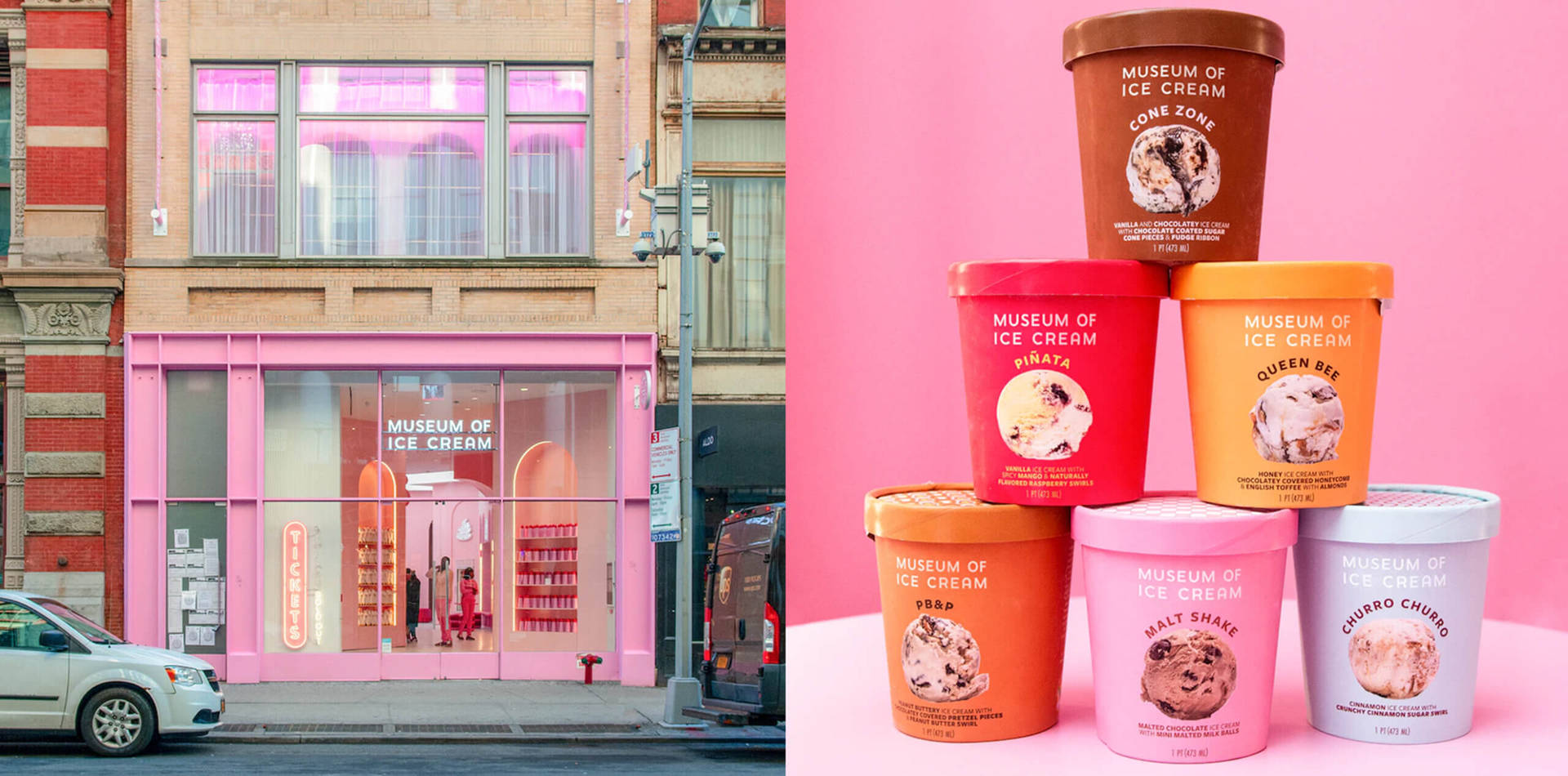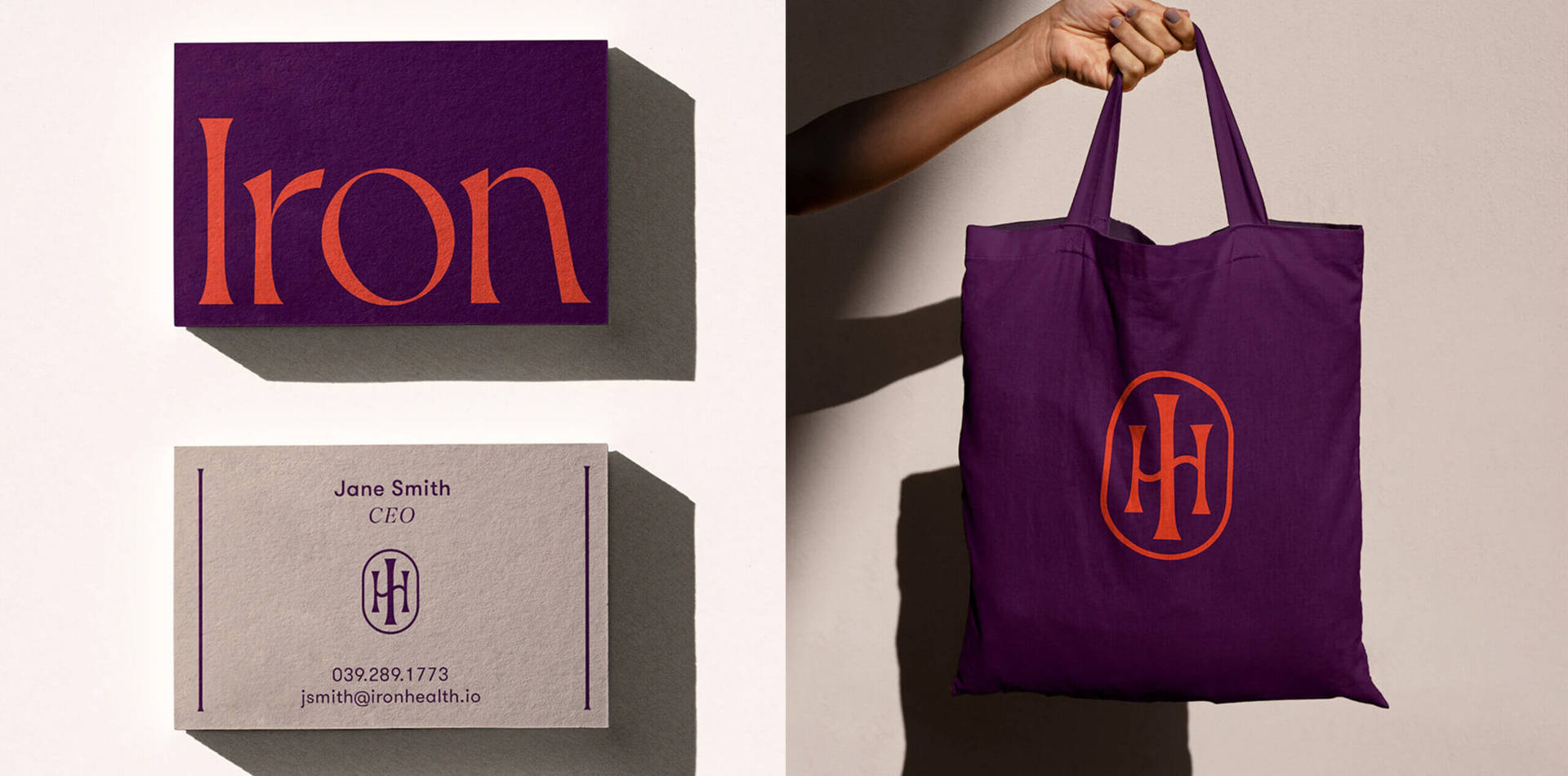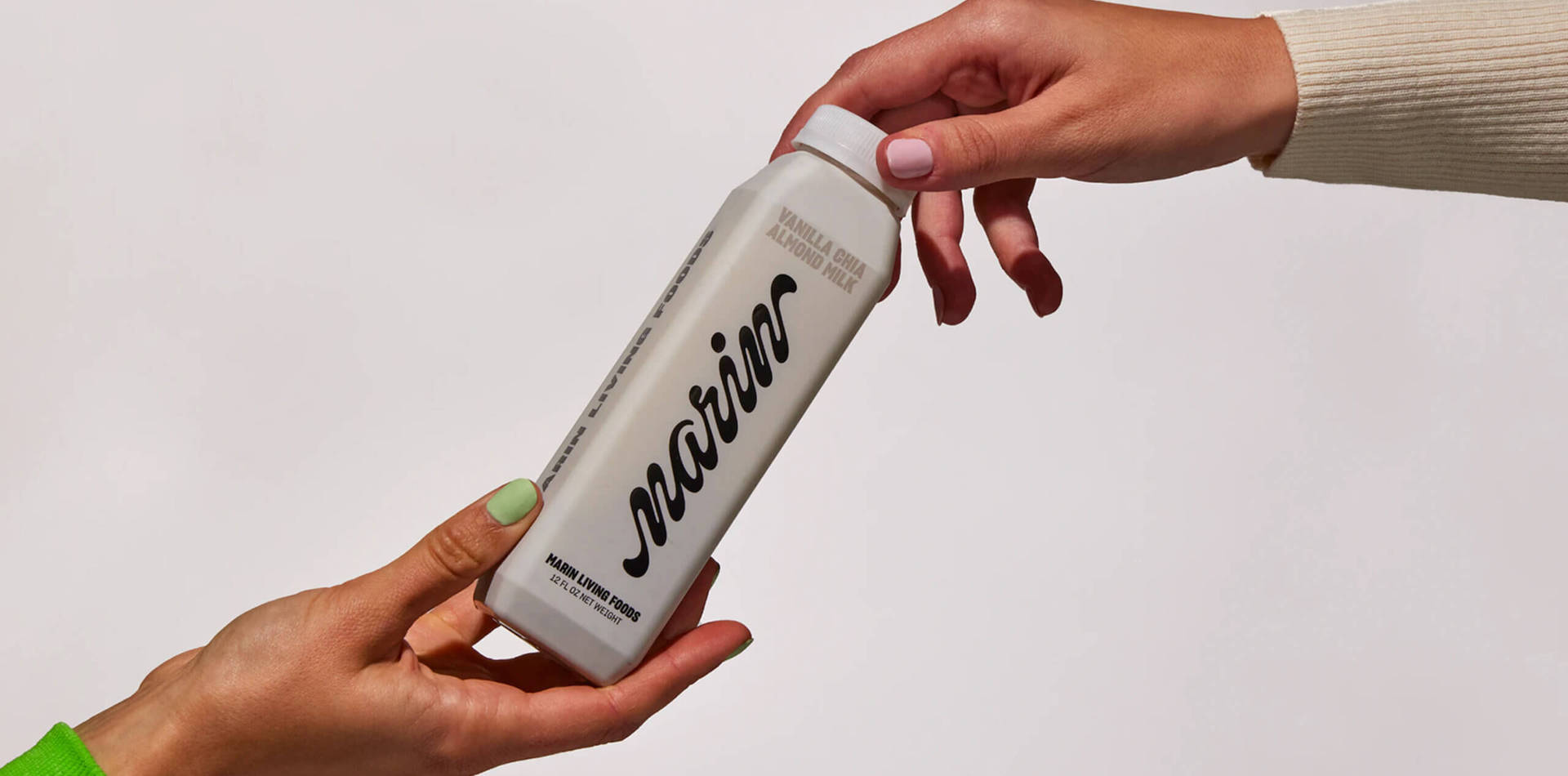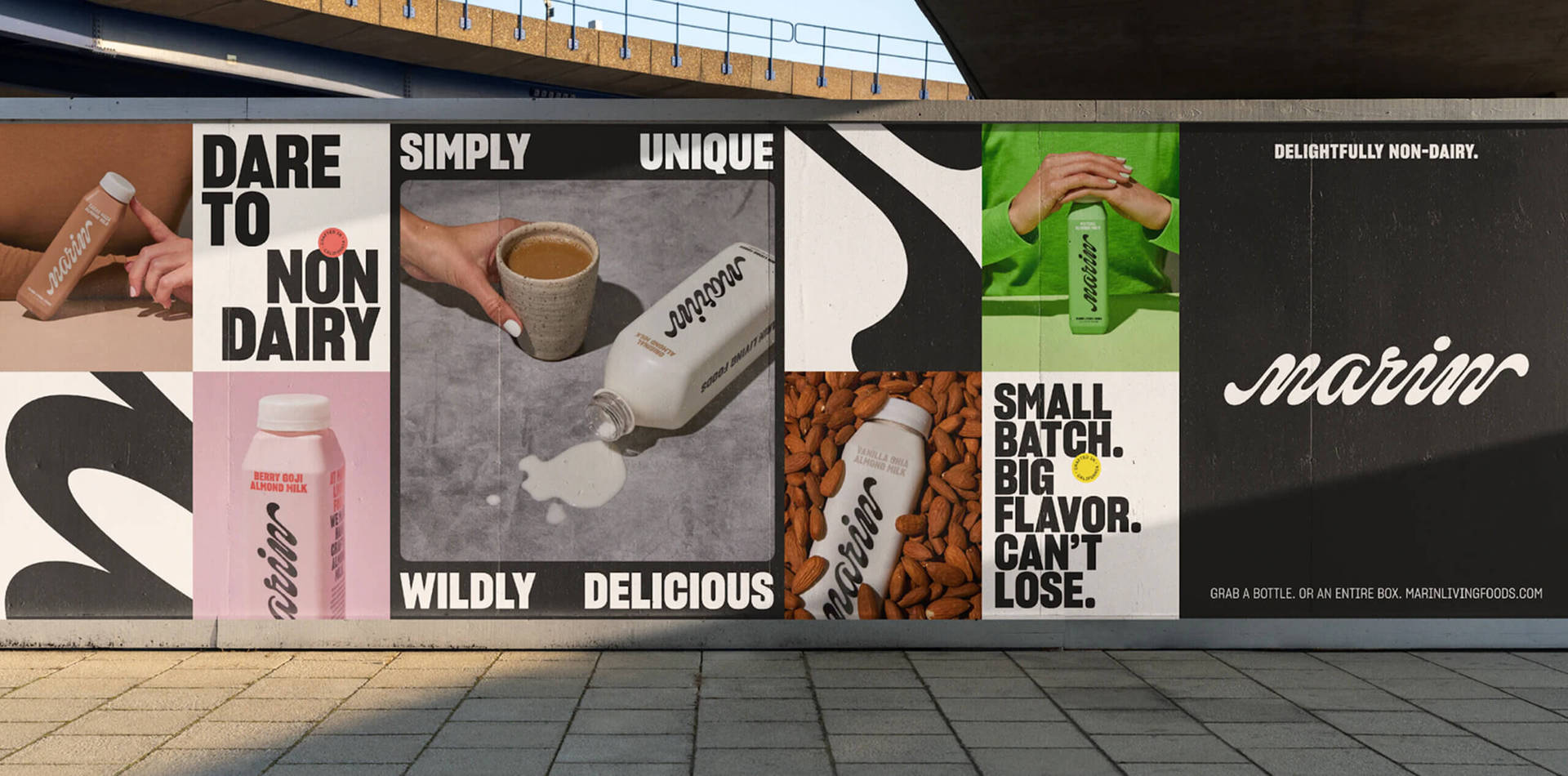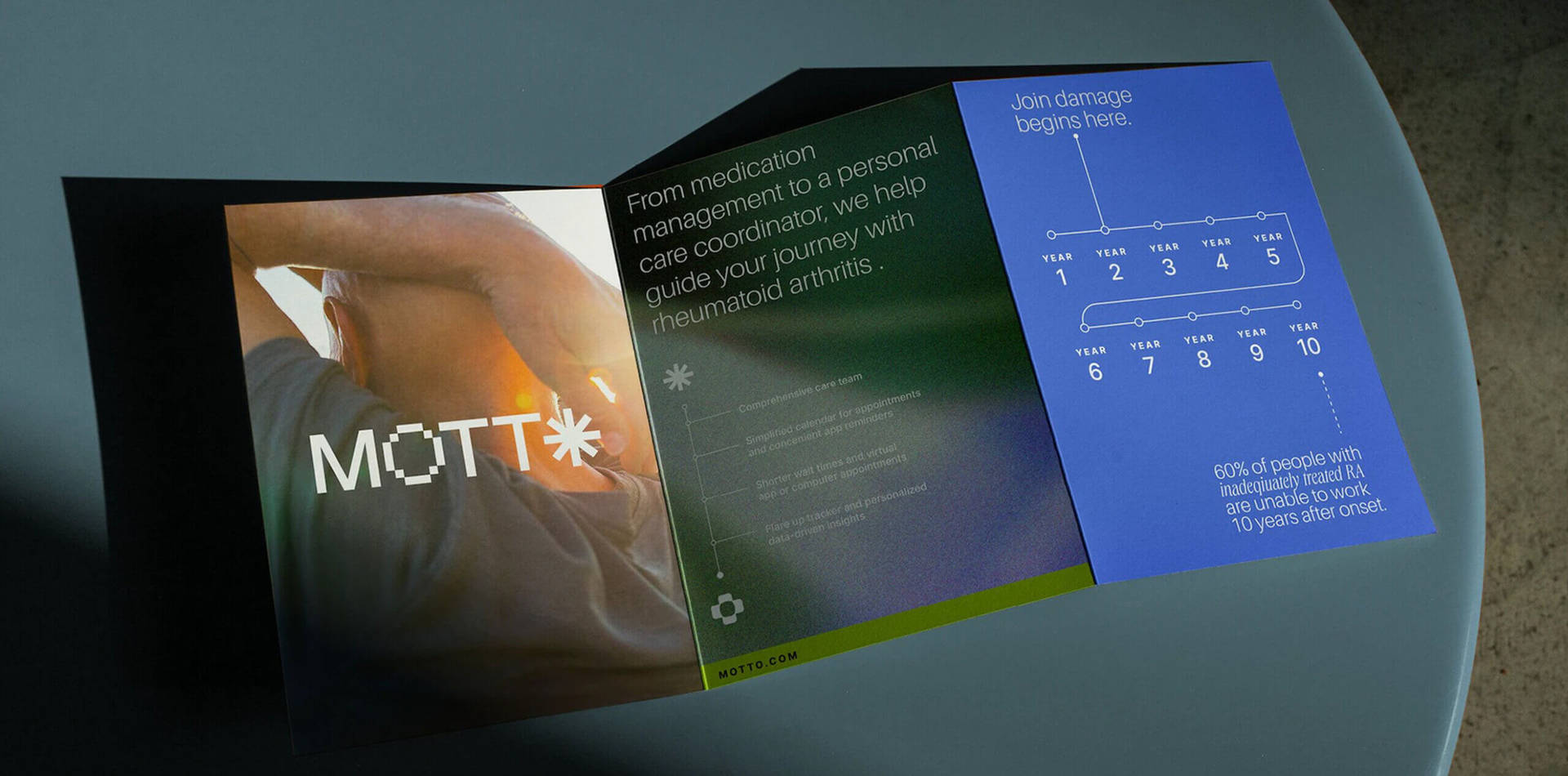Launching her own branding and creative agency The Working Assembly, whilst pregnant with her first child, Jolene Delisle initially focused on supporting women founders and minority entrepreneurs, something that has remained an integral part of the agency’s ethos.
Co-founding an agency is not for the faint hearted and Jolene admits she is an obsessive hard worker who has addressed the challenges of being a woman in business by always being over-prepared, not getting too hung up with perfection and not hesitating to put herself and her team out there. Accountability is also key to successfully running a team, as Jolene tells us, “If you say you’re going to do something, do it. Talk is cheap. Follow through and action is everything.”
Since its launch in 2017, the agency has built up an impressive client base including unicorn startups like Zola and Klarna, cultural institutions such as NYC Tourism and NYC Pride, and brands like Evian and MassMutual. Having the self-belief and confidence to really go for opportunities when they arise is something that Jolene believes is crucial to TWA’s success.

We recently chatted with Jolene to find out more about co-founding a creative agency, balancing motherhood with running a successful business and addressing the gender imbalance in leadership.
What were your first steps into the creative industry and why storytelling is integral to your creative practice?
Growing up I never really fit in. I was adopted when I was six years old and came to the US not speaking any English or being able to really communicate with the people around me. To try to learn English, my adopted parents let me watch as much TV as I wanted. I was lonely – and the stories and characters became my friends and world. My love for storytelling grew from there. In between shows, there were always a lot of commercials, and I would memorize them, sing them, study them. It’s how I learned that there were places called agencies, where people dreamt them up and made them. So it’s where I headed to start my career.
What made you take the leap and found your own creative agency The Working Assembly in 2017?
I loved working in agencies. As someone who is super passionate about what they do and an obsessive hard worker, it also meant I didn’t have much of a life outside of it. As I started getting promotions and rising through the ranks, I started getting a bit disenchanted with the industry. Most of the work we were doing was for really large companies where it felt like we were only being able to have an effect on one small part of it, or the companies themselves were a bit stagnant.
During this time, the startup scene in NYC was really on the rise. All these founders were looking to disrupt all aspects of consumer households from the way they shopped, to what they bought or how they bought it. I had a chance meeting with a few female founders and started consulting with them, helping shape their brand story, positioning, visual identity and their campaigns to go to market. I had to create an LLC so they could pay me, and my partner and I came up with the name The Working Assembly because we were working full-time and assembling creative friends to carry out the projects. When I found myself pregnant with my daughter in 2017, I knew it would be impossible for me to balance a growing side hustle, a full-time job and a growing family – so I made the leap to go all in on TWA.
Can you tell us about your experiences of initially founding your own creative agency, how you found clients and what challenges you faced?
I didn’t stop working for other people right away – meaning, although I did quit a full-time job, I didn’t leave it all to TWA to pay me an income. It was helpful to start freelancing, while also building the business and team slowly.
That said, I had two things going for me that I capitalized on. The first was I wasn’t super picky about the clients TWA took at first. I know it’s idealistic to chase a certain type of client and want to do really sexy, cool and splashy work but I knew that would come eventually. The beginning was all about establishing ourselves, creating financial security and proving that the team I had created to be able to take on work independently could successfully bring it to life.
The second thing I think that really helped shape the foundation of the agency is women and the power of an awesome network. I knew that if we did a good job for female founders and didn’t worry so much about the money but instead focused on supporting them to help shape their dreams and vision, that then they would become our cheerleaders, referring us to other founders and help connect us to other brands. It has been incredible to see the generosity, kindness and power of women helping other women.
“I knew that if we did a good job for female founders and didn’t worry so much about the money but instead focused on supporting them to help shape their dreams and vision, that then they would become our cheerleaders, referring us to other founders and help connect us to other brands.”
Actually, one more thing that was also integral– women taking a chance on me and coming to work for me. Our company was brand new, and it was a huge risk to leave an established job market to come help build the agency. And I’m so thankful to all the women who have worked alongside me – it wouldn’t have been possible without them (we seriously didn’t have any male designers for several years!).
How has TWA evolved to where you are now, and have there been any pivotal moments that stand out for you?
It’s interesting having run a company for 5+ years. In some ways, it feels like we just started, and other times it feels like it’s been a lifetime. I’m really grateful for all the opportunities we’ve had along the way. I think entering what is now our 7th (!!) this year, we are thinking about quality over quantity of projects. Trying to curate the types of opportunities we are most interested in pursuing and thinking about where our talents could have the greatest impact.
A project that really stands out to me as a guiding light is the Museum of Ice Cream which really encompasses so much of what our team really loves doing and does extremely well. Which is helping create a brand holistically from the ground up – thinking about all the touchpoints from the visual identity to signage, to packaging to the physical space. Our work with early-stage founders is something else we are really proud of and will continue to prioritize.
What are the biggest challenges you’ve faced during your career as a woman, and how have you overcome them?
As women, we sometimes tend to downplay ourselves and not be as forthcoming about accomplishments or self-promotion. I’ve always liked to be overly prepared, knowing that as women, sometimes people can be even more critical, so I would compensate with hesitating or perfectionism. It’s been something I’ve had to learn to navigate and work through, which can feel super unnatural still – promoting and advocating for myself or our team and talents and putting us up for things and opportunities as they come.
What does your current workday look like – how much time is spent on the business side and how much on creative direction and managing your team?
My current workday starts by checking my calendar and emails quickly at 7am. I get myself and my kids ready and drop them off at school around 8:30am and then most days head to our office in Flatiron. It’s been really fun having a routine out of the house again, since even though we’ve always had an office, it’s only been recently that we’ve been using it again. It’s not for everyone, but for me it’s been really refreshing getting back into a space with others.
My days are usually stacked with meetings both internally with the team to review and discuss projects, and then meeting externally with founders or new business opportunities about potential new work. Zoom fatigue is real – so whenever possible, we try to have brainstorms and creative sessions live. I try my best to get home by dinner and do a little homework and story time before putting them to bed. I’m usually back on the computer wrapping up the day around 9/10pm. I feel so fortunate for this life and flexibility – it’s everything to me.
How do you successfully balance being a mum to two young children with running a successful creative agency?
I heard someone say that work/life balance isn’t it – it’s about work/life blend. I didn’t really know what that meant at first but the more I dug into it, it made sense. I’ll never be able to really figure out a perfect balance or boundaries between all my worlds, so it has been much easier for me to instead figure out how to blend them all. I talk to my children about work and things I’m excited about. I talk to my team about my life at home and what I’m passionate about outside of work. I think the idea that you have to compartmentalize and separate so much, puts a lot of pressure on us to try to juggle it all.
“I heard someone say that work/life balance isn’t it – it’s about work/life blend. I didn’t really know what that meant at first but the more I dug into it, it made sense. I’ll never be able to really figure out a perfect balance or boundaries between all my worlds, so it has been much easier for me to instead figure out how to blend them all.”
There are definitely days where I’m much more focused on my family because someone is sick and I need to shift my workday to be more about them and then work later in the evening. There are other times though where I need to fly on a plane somewhere for a bunch of meetings, a shoot or speaking opportunity and the only time I’ll get to touch base with the kids is on a quick Facetime. I’m really fortunate in that I’ve built in a lot of transparency, support and intentionality into my life that allowed me to do both.
What do you think are the most important qualities for running and leading a successful creative team?
I think the most important quality for running a team is accountability. If you say you’re going to do something, do it. Talk is cheap, but follow through and action is everything.
“I think the most important quality for running a team is accountability. If you say you’re going to do something, do it. Talk is cheap, but follow through and action is everything.”
I think one of the reasons I’ve been successful is because I’m someone who really goes for it, and never just dreams or puts barriers up about it, but I’ll always take the steps – small or big – to try to get there.
An important quality for being creative is to be creative without limits or expectations. I love making things and creating new things all the time. I bought an ice cream store not because I love ice cream or it made the most financial sense, but because I love building brands and collaborating with others and putting something new together. It was important to me that my team sees that being creative doesn’t have to fall in a linear fashion or expected pattern – you can step out of your comfort zone and do something really wildly different.
“It was important to me that my team sees that being creative doesn’t have to fall in a linear fashion or expected pattern – you can step out of your comfort zone and do something really wildly different.”
Statistics show that only 0.1% of creative agencies are founded by women. As a successful creative director and agency owner, do you have any thoughts on how we can counteract this imbalance?
It’s not for the faint of heart to start anything, let alone a business. I know one of the main reasons I’m able to do this is because of the support system I have in my husband, who encourages me to chase big dreams and supports me in whatever I might need to do for work. Not every woman is this fortunate to have a partner in life, who not only carries a lot of the weight at home but in so many other aspects so I can focus on building the agency.
I think the reason we don’t have as many female founders in general is because of this expectation that still exists in many partnerships that women can be bosses at the office but they also will still need to carry a lot of the burden and responsibility of the labor at home, too. It’s truly impossible. We need to shift this convention in our personal lives and relationships. We also need to get better as a society in providing paid leave, access to affordable childcare and improving universal healthcare, so women can make these bigger moves to try to make things happen.
From a race perspective, there’s still such a bias that exists in the workforce, that we need as a society to continue to overcome. It’s a huge part of why we offer preferred packages and support to women entrepreneurs – they need all the support they can to have a leg up in fundraising and building.
“From a race perspective, there’s still such a bias that exists in the workforce, that we need as a society to continue to overcome. It’s a huge part of why we offer preferred packages and support to women entrepreneurs – they need all the support they can to have a leg up in fundraising and building.”
Visit:
Follow:
- Instagram: @workingassembly
